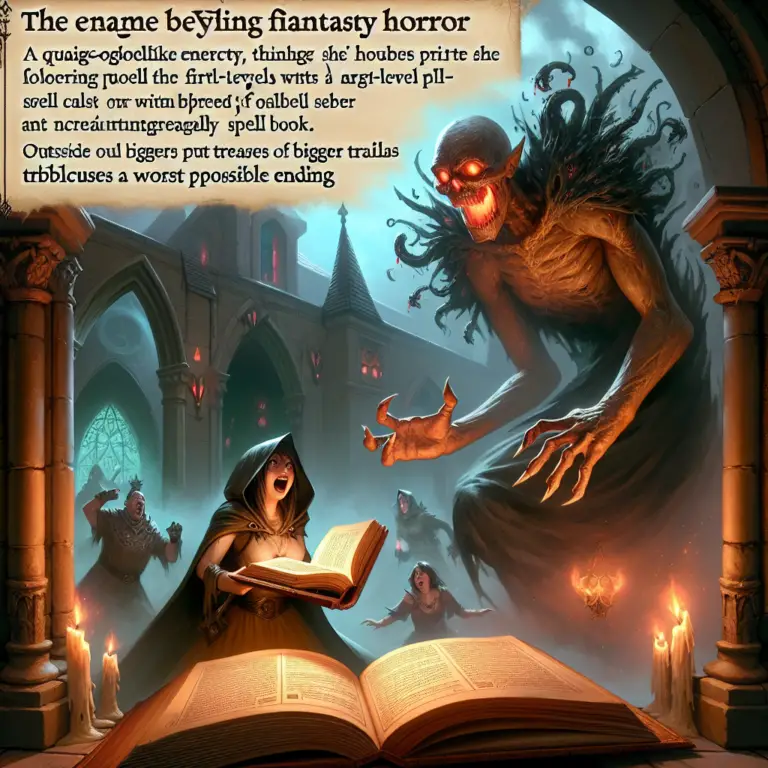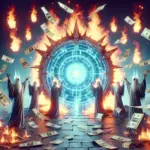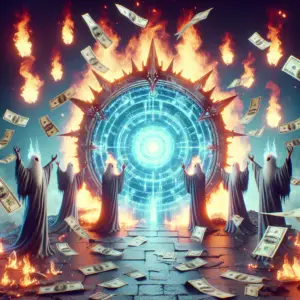Critical Decisions in Baldur’s Gate 3’s Second Act
The journey through the mythical lands of Baldur’s Gate 3 intensifies in its second act, where players are faced with decisions that could significantly alter the course of their adventure. Navigating these narrative twists and turns is so pivotal that a comprehensive guide has been crafted to aid gamers in threading this intricate storyline. As we delve into the critical choices that shape the fate of your characters, be advised that there are spoilers ahead for the game’s second act. Players seeking an untainted experience may want to tread carefully beyond this point.
A Misguided Spell
In a tale that seems more like a cautionary fable from the Dungeons & Dragons universe, a player’s attempt to outwit a deity using a simple spell took an unexpected turn. A Reddit thread by rokamuda details the sequence of events that led to an ending in Baldur’s Gate 3 that was less than favorable. The player believed they had successfully deceived Lady Shar, a god in the game, with the use of a first-level spell. However, the outcome was far from what they had anticipated.
- The player used the Disguise Self spell to complete the Nightsong encounter while impersonating another character, Shadowheart.
- After witnessing the cutscene of the Last Light Inn dome crumbling, the player received boons from Lady Shar.
- Upon exiting through a portal, the player was met with a cutscene where Lady Shar cursed them for not completing their mission and marked them as an enemy.
- Shadowheart, the character they had impersonated, was then seen asking for forgiveness, indicating the ruse had failed.
This series of decisions led to what could be considered the worst ending to Act 2, where the player managed to alienate allies and gain minimal reward for their efforts. The community’s reaction to this outcome was a mix of amusement and commiseration, recognizing the player’s unique, albeit unfortunate, ending.
The Disguise Self Spell
In Baldur’s Gate 3, the Disguise Self spell serves as a first-level arcane trick that allows players to don the appearance of someone else. While its applications may seem boundless, the spell’s scope within the game is somewhat limited. Despite this, it can significantly alter the narrative, providing access to dialogue options and areas that would otherwise be restricted.
| Spell Effect | Consequence |
|---|---|
| Changes the caster’s appearance | Access to new dialogue options and areas |
| Allows speaking with dead if the caster is the killer | Dead do not recognize the caster and may provide information |
However, the spell’s influence extends beyond mere aesthetics. In the case of the player’s interaction with Shadowheart, using Disguise Self to impersonate her during the Nightsong encounter inadvertently removed the “Shadowheart’s fulfilled her destiny” tag. This had a profound impact on the game’s narrative, leading to an ending where Shadowheart is cast aside by her deity, Lady Shar, for not showing her true self.
Implications of the Player’s Actions
The player’s clever use of the Disguise Self spell in Baldur’s Gate 3 led to unintended consequences for Shadowheart, one of the game’s central characters. By attempting to deceive a god, the player inadvertently caused Shadowheart to be rejected by her deity, Lady Shar. This outcome not only affected Shadowheart’s personal narrative but also contributed to what is arguably the most dismal ending of the game’s second act.
The community’s reaction to this player’s experience was a blend of humor and empathy. Some players saw the irony in trying to outsmart a deity and ending up with a less than stellar outcome, while others felt a sense of solidarity with the character’s plight. The consensus was that the player’s actions had indeed led to a unique, if not particularly joyous, conclusion to the act.
Shadowheart’s journey, marked by abduction, survival, and a crisis of faith, culminated in a moment of rejection that underscored the harsh realities of the game’s world. The player’s decision, a seemingly small act of magical subterfuge, had rippling effects that underscored the weight of choice in the game’s expansive narrative.












